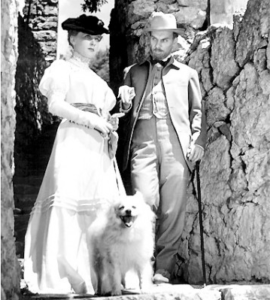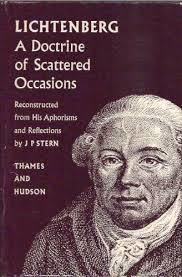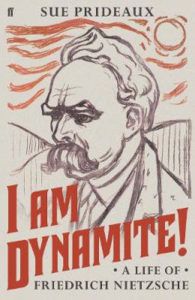Peter Smith's Blog, page 69
February 26, 2019
Seven books: Chekhov
 Once upon a very long time ago, there were — as well as the usual commercial cinemas — no less than three cinemas in Cambridge showing foreign and/or older films. There was the lovely small Arts Cinema in the middle of town; out along Mill Road there was the Kinema; and then there was the huge Rex Cinema in Magrath Avenue. The last two were very run down and had seen much better days. But they would, in term time in my student days, each show two programmes a week, each programme showing two films — often in mini-seasons, say of Garbo’s films, or Eisenstein’s films, or classic westerns, or the then-new French nouvelle vague. I and my friends saw a lot of films. And the seasons would repeat too for new generations of students. I must have seen Jules et Jim five or six times if I saw it once.
Once upon a very long time ago, there were — as well as the usual commercial cinemas — no less than three cinemas in Cambridge showing foreign and/or older films. There was the lovely small Arts Cinema in the middle of town; out along Mill Road there was the Kinema; and then there was the huge Rex Cinema in Magrath Avenue. The last two were very run down and had seen much better days. But they would, in term time in my student days, each show two programmes a week, each programme showing two films — often in mini-seasons, say of Garbo’s films, or Eisenstein’s films, or classic westerns, or the then-new French nouvelle vague. I and my friends saw a lot of films. And the seasons would repeat too for new generations of students. I must have seen Jules et Jim five or six times if I saw it once.
One film I particularly fell in love with was that most perfect of literary adaptions, the 1960 Russian film of Chekhov’s “The Lady with the Little Dog”, Dama s sobachkoy. Seeing it again after all these years,  it is still magically evocative, and so very true to Chekhov’s story as I soon discovered. For it was the film that introduced me to the writing, firstly in that old Penguin collection Lady with Lapdog and Other Stories. And I must have taken the now rather battered copy from the shelves most years since to re-read a story or two, though most often by far that title story again.
it is still magically evocative, and so very true to Chekhov’s story as I soon discovered. For it was the film that introduced me to the writing, firstly in that old Penguin collection Lady with Lapdog and Other Stories. And I must have taken the now rather battered copy from the shelves most years since to re-read a story or two, though most often by far that title story again.
That book led to other collections of Chekhov stories, and eventually to the plays. One of the great theatre experiences of my life was seeing a touring production of Three Sisters in Aberystwyth when we were living there. The staging and acting — I think originating from Theatr Clwyd — were brilliant. But what made the atmosphere in the theatre so intense was that so many of the audience there really did dream of going to Moscow, to Moscow. Or at least away from that remote part of Wales. There is a Chekhov story there …
The post Seven books: Chekhov appeared first on Logic Matters.
IFL2: Propositional truth trees
[Reposted]
The first edition of An Introduction to Formal Logic did logic by trees. The main text of the second edition will do natural deduction, Fitch-style. But chapters on truth trees will still be available, as two online appendices. And these appendices will, indeed, together make a brisk stand-alone introduction to logic by trees for a reader who knows the basics about the languages of propositional and predicate logic.
Here, then, is the first appendix, on propositional truth trees (pp. 27). This is a slightly revised version from the one posted a few days ago. It is free to use and distribute. And the plan is for it to remain freely available, through the IFL2 page. Needless to say, all further comments/corrections gratefully received.
The post IFL2: Propositional truth trees appeared first on Logic Matters.
February 24, 2019
Seven books: Georg Christoph Lichtenberg
 It’s a thing on Twitter at the moment — people posting the covers of seven books that have meant something to them, without comment, and nominating others to join in and post their choices in turn. Actually, I’d prefer to see at least brief comments and explanations, for these can be half the interest and enjoyment; but it got me thinking about what books I’d choose (putting aside the likes of, say, Anna Karenina and other books which have perhaps meant the most, but hardly need words of approbation from me!).
It’s a thing on Twitter at the moment — people posting the covers of seven books that have meant something to them, without comment, and nominating others to join in and post their choices in turn. Actually, I’d prefer to see at least brief comments and explanations, for these can be half the interest and enjoyment; but it got me thinking about what books I’d choose (putting aside the likes of, say, Anna Karenina and other books which have perhaps meant the most, but hardly need words of approbation from me!).
Here then is one I’d perhaps choose for my seven — appropriate at any rate to this day, for it happens to be the 220th anniversary of Lichtenberg’s death. I must have bought J. P. Stern’s Lichtenberg: A Doctrine of Scattered Occasions as a student — it was remaindered in Galloway and Porter of fond memory. I was told about the book, I think, by another student who had gone to talk to Stern about Wittgenstein. I’m not sure why I found Lichtenberg’s aphoristic take on the world, his disorderly mind, so appealing: a counter, perhaps, to my mathematician’s over-orderliness. And he can suggest so much in a striking hint — ‘He was astonished that cats have two holes cut in their fur at precisely the spot their eyes are’. Over the years, I have kept returning to his humane reflections, to his jottings on the complexity of our human world and of the natural world. I find something immensely likeable about the man who reveals himself here.
There’s a much more recent and wider selection from his ‘Wastebooks’ to be found in Georg Christoph Lichtenberg: Philosophical Writings (trans. Steven Tester, SUNY, 2012). But it is to Stern’s insightful book which I still return with pleasure.
(And talking of Twitter, Lichtenberg occasionally tweets @GeorgCL.)
The post Seven books: Georg Christoph Lichtenberg appeared first on Logic Matters.
Seven books: Lichtenberg
 It’s a thing on Twitter at the moment — people posting the covers of seven books that have meant something to them, without comment, and nominating others to join in and post their choices in turn. Actually, I’d prefer to see at least brief comments and explanations, for these can be half the interest and enjoyment; but it got me thinking about what books I’d choose (putting aside the likes of, say, Anna Karenina and other books which have perhaps meant the most, but hardly need words of approbation from me!).
It’s a thing on Twitter at the moment — people posting the covers of seven books that have meant something to them, without comment, and nominating others to join in and post their choices in turn. Actually, I’d prefer to see at least brief comments and explanations, for these can be half the interest and enjoyment; but it got me thinking about what books I’d choose (putting aside the likes of, say, Anna Karenina and other books which have perhaps meant the most, but hardly need words of approbation from me!).
Here then is one I’d perhaps choose for my seven — appropriate at any rate to this day, for it happens to be the 220th anniversary of Lichtenberg’s death. I must have bought J. P. Stern’s Lichtenberg: A Doctrine of Scattered Occasions as a student — it was remaindered in Galloway and Porter of fond memory. I was told about the book, I think, by another student who had gone to talk to Stern about Wittgenstein. I’m not sure why I found Lichtenberg’s aphoristic take on the world, his disorderly mind, so appealing: a counter, perhaps, to my mathematician’s over-orderliness. And he can suggest so much in a striking hint — ‘He was astonished that cats have two holes cut in their fur at precisely the spot their eyes are’. Over the years, I have kept returning to his humane reflections, to his jottings on the complexity of our human world and of the natural world. I find something immensely likeable about the man who reveals himself here.
There’s a much more recent and wider selection from his ‘Wastebooks’ to be found in Georg Christoph Lichtenberg: Philosophical Writings (trans. Steven Tester, SUNY, 2012). But it is to Stern’s insightful book which I still return with pleasure.
(And talking of Twitter, Lichtenberg occasionally tweets @GeorgCL.)
The post Seven books: Lichtenberg appeared first on Logic Matters.
February 23, 2019
IFL2: Propositional truth trees
The first edition of An Introduction to Formal Logic did logic by trees. The main text of the second edition will do natural deduction, Fitch-style. But chapters on truth trees will still be available, as two online appendices. And these appendices will, indeed, together make a brisk stand-alone introduction to logic by trees for a reader who knows the basics about the languages of propositional and predicate logic.
Here, then, is the first appendix, on propositional truth trees (pp. 27). This is free to use and distribute. It should remain stably available, through the IFL2 page. Needless to say, all comments/corrections gratefully received.
The post IFL2: Propositional truth trees appeared first on Logic Matters.
February 17, 2019
Conference on proof-theoretic semantics
There are so many really interesting-looking logic conferences these days. The Third Tübingen Conference on Proof-Theoretic Semantics, 27–30 March 2019 promises to be particularly good, and an earlier time-slice of me would have been very tempted to go. I do hope the organisers video the sessions, when speakers are happy about that, and put the the videos and/or the written papers online.
The post Conference on proof-theoretic semantics appeared first on Logic Matters.
February 11, 2019
IFL2: Two chapters on conditionals
How do you say enough about conditionals at an introductory level, to motivate the truth-functional material conditional to beginners? On the one hand, you want to avoid telling outright fibs or entirely glossing over problems. On the other hand, you don’t want to tangle with issues about conditionals to the point where the student reader is left puzzled about why we are sticking with what has been made to seem such a dodgy rendition of the conditional. How to steer a helpful middle course?
Judging by the frequency of questions about the material conditional on math.stackexchange along the lines of “what is going on here!?”, this is a tricky issue for any entry-level lecture course or textbook. Here then is the latest version of my introductory efforsHere then is the latest version of my introductory effort for IFL2 (there’s another later chapter about rules of inference for the conditional in a Fitch-style ND system which reinforces the point made at the very end of these chapters).
Do point students to these chapters (if you think they might be helpful)! And/or send me comments (if you spot typos or can think of ways to improve them!).
The post IFL2: Two chapters on conditionals appeared first on Logic Matters.
February 5, 2019
Not so explosive …
 There’s no doubt that Sue Prideaux’s I am Dynamite is a highly entertaining read, and rattles along wonderfully well as a late-night distraction. It has its jaw-dropping moments. Wagner comes across as a ludicrously bombastic figure (who could possibly have guessed that from the music?). And Nietszche cuts a sad figure, plagued with ill-health, fizzing with quarter-baked ideas, writing far too fast when he does, and never slowing, it seems, for the hard graft of actually working things through, and worrying little about contradicting himself. So he leaves us with cloudy and fragmentary mirrors in which all kinds of readers can and do glimpse what they want to find.
There’s no doubt that Sue Prideaux’s I am Dynamite is a highly entertaining read, and rattles along wonderfully well as a late-night distraction. It has its jaw-dropping moments. Wagner comes across as a ludicrously bombastic figure (who could possibly have guessed that from the music?). And Nietszche cuts a sad figure, plagued with ill-health, fizzing with quarter-baked ideas, writing far too fast when he does, and never slowing, it seems, for the hard graft of actually working things through, and worrying little about contradicting himself. So he leaves us with cloudy and fragmentary mirrors in which all kinds of readers can and do glimpse what they want to find.
I’m quite grateful to Sue Prideaux. Reading some more Nietzsche was on my retirement list of cultural gaps perhaps to fill. She’s certainly inoculated me against that. (Her concluding pages of Nietzschean aphorisms which had particularly struck her obviously struck me very differently!). I might well, however, be reading more Prideaux …
The post Not so explosive … appeared first on Logic Matters.
IFL2: Three chapters on natural deduction (for propositional logic)
I won’t bore you by reviewing the crooked path by which we got here. But I’m steadily working on the draft second edition of my intro logic book, with a cheerier feeling about the project.
And I can now offer you — drumroll! — some excerpts from three chapters on a Fitch-style natural deduction system for propositional logic, covering the rules for conjunction, disjunction and negation (and outline soundness/completeness proofs). For copyright reasons, these are excerpts of a few pages here and there, rather in Google books style, so the text jumps forward a couple of times. But the pages should be enough for you to be able to tell if you are interested in seeing more!
If you would like to see these chapters in full, about forty reasonably polished pages, do please drop an email to the address on the top of the PDF. The understanding is that if you ask to see more, then you won’t put the chapters into general circulation, and you will try to give at least some minimal comments (and certainly let me know about any errors you spot). At this stage in the game, even an encouraging ‘looks pretty ok to me!’ is welcome and helpful.
The post IFL2: Three chapters on natural deduction (for propositional logic) appeared first on Logic Matters.
IFL2 — Three chapters on natural deduction (for propositional logic)
I won’t bore you by reviewing the crooked path by which we got here. But I’m steadily working on the draft second edition of my intro logic book, with a cheerier feeling about the project.
And I can now offer you — drumroll! — some excerpts from three chapters on a Fitch-style natural deduction system for propositional logic, covering the rules for conjunction, disjunction and negation (and outline soundness/completeness proofs). For copyright reasons, these are excerpts of a few pages here and there, rather in Google books style, so the text jumps forward a couple of times. But the pages should be enough for you to be able to tell if you are interested in seeing more!
If you would like to see these chapters in full, about forty reasonably polished pages, do please drop an email to the address on the top of the PDF. The understanding is that if you ask to see more, then you won’t put the chapters into general circulation, and you will try to give at least some minimal comments (and certainly let me know about any errors you spot). At this stage in the game, even an encouraging ‘looks pretty ok to me!’ is welcome and helpful.
The post IFL2 — Three chapters on natural deduction (for propositional logic) appeared first on Logic Matters.



